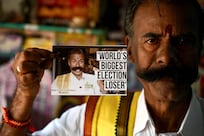Damascus // International pressure on Syria increased yesterday when Kuwait called for an end to violence and for real political reforms. It is the first time an Arab country has publicly criticised Damascus over its suppression of a pro-democracy uprising.
Kuwait felt "extreme pain for the continued bloodshed" among Syrians, a foreign ministry official said in remarks reported by the state-run news agency, KUNA.
"Kuwait calls for dialogue and a political solution to allow implementing true reforms that meet the legitimate demands of the Syrian people away from the security actions," the official said.
Syrian security forces killed 14 people during yesterday afternoon's protests, according to activists, as thousands demonstrated on the first Friday of Ramadan.
With Arab states thus far silent on the situation in Syria, the comments from Kuwait were carefully noted in Damascus.
"To see Kuwait criticising the regime is an important step," said a Syrian analyst based in the capital. "Until now the Arab states have been talking behind the scenes and have not gone public. This is a worrying sign for the regime."
Turkey, one of Syria's closest allies, added to its earlier repeated criticisms of Damascus yesterday. "Operations with heavy arms and tanks in densely populated residential areas like Hama are not legitimate at all," Turkey's foreign minister, Ahmet Davutoglu, said.
Those comments came after Russia, which has provided diplomatic cover for Damascus on the world stage, warned the Syrian president, Bashar Al Assad, he faced a "sad fate" unless he ended violence and pushed through immediate, genuine reforms.
First Russia and now Kuwait, the Syrian regime is getting more and more isolated," the Damascus-based analyst said. "Even its friends are beginning to turn their backs now. The bloodshed is deepening and getting harder and harder to ignore."
The focus of yesterday's violence was Erbeen, on the outskirts of Damascus, where seven protesters were shot dead, according to the Local Coordination Committees, a coalition of demonstration organisers. Another three were killed in Douma and one in Moadamiyah, also suburbs of the capital, the LCC and human-rights groups said. A further two deaths were reported by human-rights monitors in Homs, and one in Deraa, on the southern border with Jordan.
More protests were expected to take place after evening prayers, raising the possibility of the death toll increasing throughout the night. With the Muslim holy month of Ramadan under way, extended demonstrations have been taking place between dusk and dawn.
Syrian state-run media said two security officers were killed and eight injured in an ambush by "armed groups" in the northern province of Idleb, with ambulances coming under fire en route to help the wounded. It also reported gunmen shooting at security forces in Douma and Homs. It made no mention of civilian casualties.
Neither the accounts of human-rights activists or the government can be independently verified. For months the United Nations has requested access for a human-rights investigation team but the Syrian authorities have refused.
Activists admitted the scale of yesterday's protests was reduced compared with previous weeks, when millions have taken to the streets across the country demanding the downfall of Syria's autocratic regime. They blamed drastically heightened security measures for the lower turnout.
"It's amazing there are any protests at all this week, with all the security measures in place, with the army in cities and so many arrests," said one supporter of the five-month-old pro-democracy uprising.
In the past week alone, in a handful of Damascus districts, civil-rights campaigners have recorded thousands of detentions; 1,000 people were arrested in sweeps by secret police in Ruskin El Din, Syrian lawyers monitoring the situation said, with another 1,200 taken in Qaboun, 1,000 in Hajar Aswad and 400 in Qadam.
Civil-rights campaigners say more than 100 people have been killed since the Ramadan offensive - centred on Hama - began, and have warned the real figure likely to me much higher. Upwards of 1,800 have died nationwide since March, human-rights monitors say.
Inside Syria anti-regime rhetoric has also been hardening, with activists reporting a new chant on the streets of Midan, an affluent Damascus suburb were there have been persistent demonstrations. Previously, demonstrators sang "the people want the downfall of the regime". Yesterday they chanted: "The people want the execution of Bashar."
That slogan underlines deep divisions in Syrian society, with Mr Al Assad still commanding support among a hard core of loyalists and, anecdotally, among many ordinary Syrians who believe that he is all that stands between the country and sectarian civil war.
Mr Al Assad has blamed the uprising on foreign conspirators, and says he faces an Islamist militant revolt that must be put down by force of arms. He has promised democratic political reforms but they have fallen far short of the sweeping changes demanded by opposition groups and the international community.




